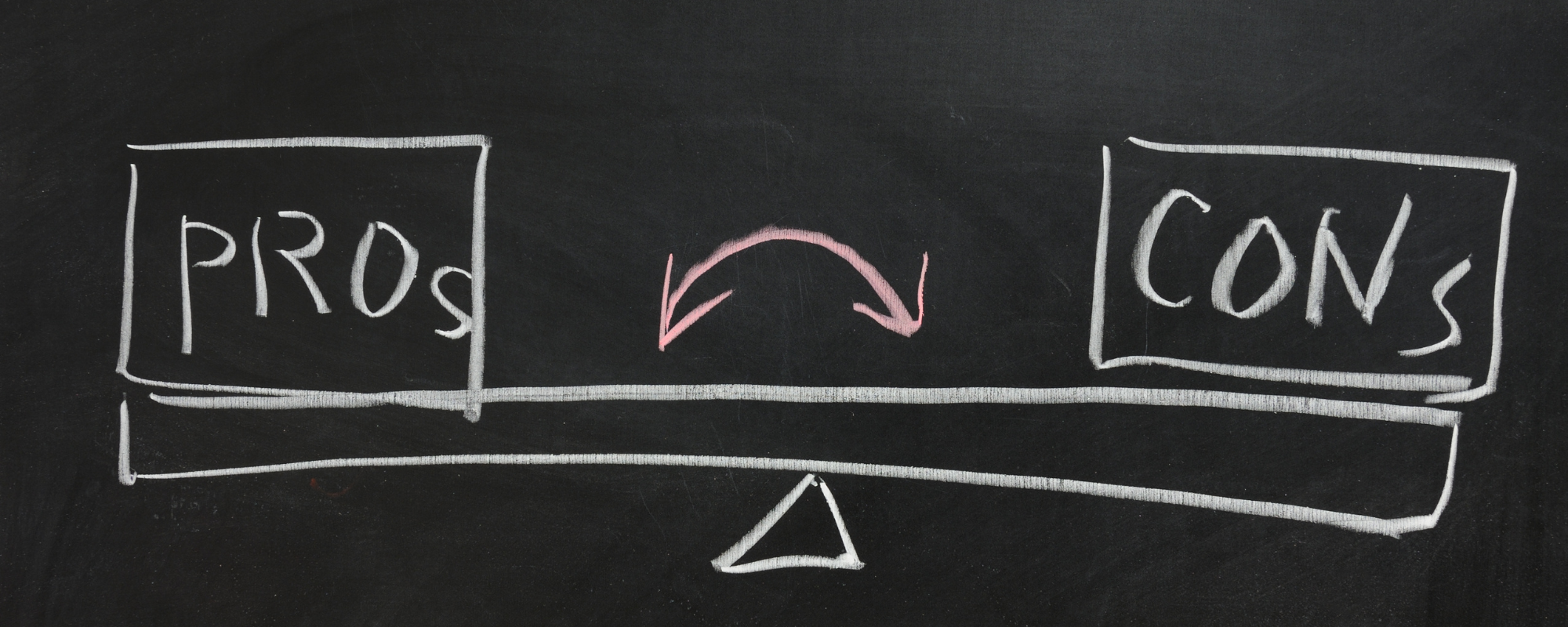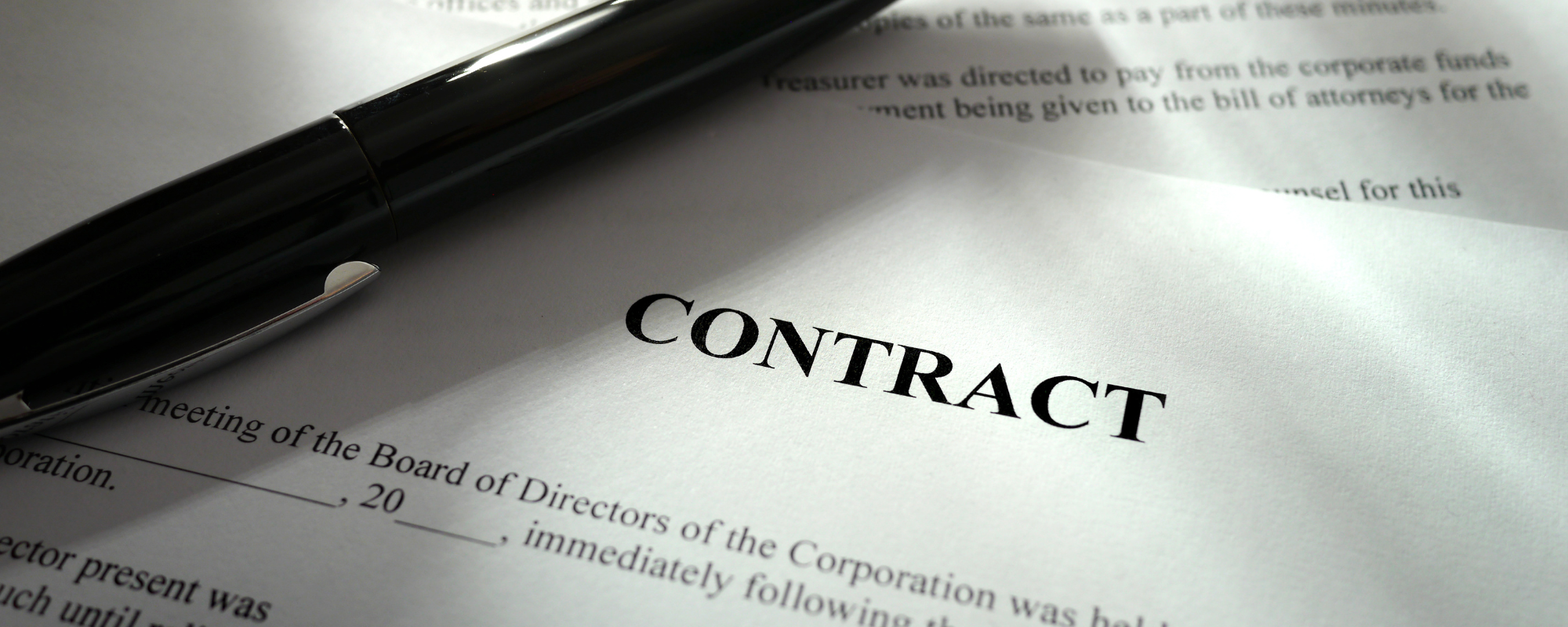If you’ve been weighing up the different ways to tackle debt, you will have probably looked at an Individual Voluntary Arrangement (IVA) as a potential solution.
To make an informed decision, it’s crucial to weigh the IVA pros and cons to see whether it would make sense for your personal circumstances.
In this comprehensive guide, we’ll discuss the advantages and disadvantages of an IVA, discuss eligibility criteria, and compare it to other debt solutions.
We’ll also share real-life IVA success stories to provide you with a well-rounded understanding of this debt solution.
Understanding an IVA

An IVA is a legally binding agreement designed to help individuals repay their unsecured debts such as credit cards and loans over a fixed period, typically 5 years.
This debt solution allows for affordable monthly payments tailored to individual financial circumstances while offering some level of legal protection from creditors.
Upon successful completion of an IVA, any remaining unsecured debt is written off, providing a fresh start for those who have been struggling with their finances.
Want to find out more about how PennyPlan can help you with your debt?
Advantages of an IVA

Entering into an IVA comes with several benefits, for some more than others depending on your own personal circumstances.
The Individual Voluntary Arrangement can stop creditor contact, protect your house and even write off a portion of your debt.
Read on to find out the IVA pros that could make the solution an appealing option.
A legally binding solution
One of the most significant benefits of an IVA is the legal protection it provides.
An IVA is legally binding.
This means that as long as you adhere to your side of the agreement, creditors must adhere to the terms of the IVA for its duration also.
This prevention of further legal action can offer peace of mind and security to those worried about further action.

One monthly payment
Sometimes juggling several payments to pay across different times of the month can be a real task to keep up.
Alongside the stress and anxiety of meeting this commitments, it can be solace to some that an IVA consolidates all your unsecured creditors into one monthly payment.
This allows you to focus on other important payments like household bills.
Manageable Repayments
An IVA proposal offers a repayment plan tailored to your specific financial circumstances.
Your Insolvency Practitioner (IP) will assess your income and outgoings to determine an affordable monthly repayment you can maintain without falling behind on household bills.
The affordable monthly payments provide a sense of financial stability and make it easier to budget and plan for the future.
Individual Voluntary Arrangements also take into consideration change in circumstances.
This means that if your income changes, or expenses increase, then your Practitioner can review your new circumstances to keep your IVA payment at an affordable rate.
Asset Protection

Another advantage of an IVA is the protection of your personal assets.
If you are a homeowner, this could potentially make the solution more favourable than the other debt solution of Bankruptcy.
While assets such as your home or vehicle may need to be assessed for equity release, they are generally safeguarded from being sold to repay your debts.
This aspect of an IVA gives people peace of mind regarding their assets to focus fully on repaying your unsecured commitments.
Debt Write-off
Upon successful completion of an IVA, any remaining unsecured debt is written off. This provides you a clean slate for your financial future.
Compared to other debt solutions such as a debt management plan, where you have to repay the debt in full and potentially interest and charges, it can shave a significant amount off your time to debt freedom.
This debt write-off can be a significant relief for those who have struggled with unmanageable debt for years, allowing them to finally move forward in a realistic timeframe and regain control of their finances.
Ceased Creditor Contact
Once an IVA is in place, the creditors to whom you owe money are no longer permitted to contact you directly to demand payment.
This block on creditor contact can alleviate stress and anxiety associated with constant phone calls and letters from creditors, removing the fear of opening mail or answering the phone to unfamiliar numbers.
That sense of relief can transcend further. With the contact now non-existent, your focus can now be on repaying the remaining debt on your path to a debt free freedom.
Interest rates and charges are frozen
An IVA halts interest rates and charges on your unsecured debts to whom you owe money, ensuring that balances do not continue to rise.
Rising interest and charges can cause stress and anxiety, with a feeling of being unable to escape the ever increasing debt level.
Rather than seeing a growing number, you would be able to see a figure that descends and allows you to feel progression.
Protection From Legal Action (Including Bailiffs)
This legally binding arrangement offers protection from legal action, such as council tax bailiffs and court orders.
This can be one of the biggest reliefs and appeals for people to choose a formal arrangement like an IVA as opposed to an informal solution Debt Management Plan.
Bailiffs can be a particularly traumatic experience that can cause huge stress and worry. An IVA can halt this action in its tracks and protect you moving forward as long as you continue to adhere to the agreement.
Want to find out more about how PennyPlan can help you with your debt?
Disadvantages of an IVA

As we have discussed so far, an IVA offers numerous benefits.
However, it is essential to weigh the IVA pros and cons before entering into this legally binding agreement.
Read on as we discuss the IVA disadvantages so you can make a fully informed decision.
Credit Rating Impact

An IVA will negatively affect your score with credit reference agencies for the term of the solution. Once the IVA has completed it stays on your credit file for a further 12 months (6 Years in total).
This adverse impact on your credit rating may make it difficult to obtain further credit, loans, or mortgages for a period after completion of the IVA.
This disadvantage should be weighed against your current financial situation, such as whether you have already defaulted on your credit facilities which will have an impact for 6 years itself.
Limitations on lending
Whilst on an IVA, all your creditors will demand that no further credit facilities are taken out during the IVA agreement.
In exceptional circumstances, there may be some ‘wiggle room’ for genuine needs, such as household needs like a washing machine or renewing a car lease.
You are not permitted to take on additional credit in excess of £500 without the approval of your Insolvency Practitioner.
Only unsecured debts can be included
An IVA only covers unsecured debts, not secured debts like mortgages or car finance agreements.
If you have a mix of secured and unsecured commitments, you will need to continue repaying your secured debts separately whilst also making IVA payments.
However, an Insolvency Practitioner will budget in to your expenditure your secured commitments to ensure any disposable income has taken into account all of your outgoings.
You may have to contribute any windfalls towards the IVA
In every IVA proposal, there is an item named the ‘windfall clause’
If you receive a windfall, such as an inheritance or bonus, exceeding £500 during your IVA, you may be required to contribute a percentage or all of these funds towards your IVA.
There is a reasonable explanation for this. The creditors are agreeing to write off a percentage of your debt due to your financial hardship.
If your financial situation improves, they expect their write off percentage to improve also.
If you are aware of a windfall that may occur during the term of the IVA, it is worth discussing this with the Insolvency Practitioner so you can be fully informed of your obligations.
You may need to release equity from your home
Dependant on their own circumstances, homeowners may be asked to release equity from their property to contribute to their IVA.
This may involve attempting to remortgage your home or taking out a secured loan, with the released equity being contributed towards the IVA.
If this is not possible due to eligibility criteria, the creditors typically ask to extend the IVA by a further 12 months.
Your IVA is noted on the Individual Insolvency Register
Once approved, your IVA will be listed on the Individual Insolvency Service Register (IIR).
Although considered a public register, people are unlikely to ‘stumble’ onto the individual insolvency register and your IVA details.
It is likely someone would only find details of the IVA if they had been searching with intent.
Limitations on certain Debt Types
Some types of debt cannot be included in an IVA and must be repaid separately, such as secured debts, child maintenance and student loans.
Benefit overpayments that have been deemed fraudulent rather than miscalculated cannot be included also.
If you have a mix of eligible and ineligible debts, you will need to continue repaying these ineligible debts separately.
However, the ineligible debts are included in your income and expenditure to ensure that the IVA payment remains affordable.
IVA Eligibility Criteria

To be eligible for an IVA, you must have a minimum of £6,000 in qualifying unsecured debt owed to two or more creditors. There is no criteria on the split required between the creditors.
In addition, a regular income is required to ensure that you can maintain the monthly payments agreed upon in the IVA. This income must leave you with a ‘disposable income’ after paying out your household bills, that can be offered to creditors as a monthly payment.
It’s also important to note that the IVA can only commence if creditors holding 75% of your debts approve the arrangement.
If your creditors do not agree to the IVA, you may need to explore alternative debt solutions such as debt management plan or bankruptcy.
Want to find out more about how PennyPlan can help you with your debt?
Comparing IVA to Other Debt Solutions

Before deciding on an IVA, it’s essential to compare it to other debt solutions that may be available, such as:
- Debt management plans
- Debt consolidation loans
- Bankruptcy
- Debt relief orders
- Administration orders
Each of these solutions has its own set of pros and cons, and the best solution for you will depend on your individual circumstances.
For example, while bankruptcy may offer a quicker path to debt relief, it may also have more severe consequences for your credit rating and assets. A similar option is a Debt Relief Order (DRO for short), but that also has a strict criteria to be eligible.
On the other hand, a debt management plan may provide a more flexible repayment schedule, but may not offer the same legal protection as an IVA.
It’s crucial to consider all available options and consult with a debt advisor for debt advice before committing to any debt solution.
Real-Life IVA Reviews (From People We Have Helped)

Summary
In conclusion, an Individual Voluntary Arrangement has the potential to be a viable solution for those struggling with unsecured debt.
IVA advantages such as halting legal action and debt write off, it can provide a path to financial freedom in a better timeframe to some of its counterparts.
However, it’s important to consider the potential disadvantages, such as the impact on your credit rating and ability to obtain further credit for the IVA duration.
By carefully weighing the pros and cons of an IVA, and comparing it to other debt solutions, you can make an informed decision that best suits your financial situation and give you the best chance of becoming debt free.
If you’re anxious about choosing a reputable company to seek IVA advice from, our article on how to spot IVA companies to avoid could be beneficial.
Want to find out more about how PennyPlan can help you with your debt?
Frequently Asked Questions
What are the IVA advantages?
- One Monthly Payment
- Interest & Charges Frozen
- Repayment period typically of 5 years
- Any debt remaining is written off
What are the disadvantages of IVA?
- Negative impact on credit file
- Restrictions on obtaining further credit for IVA duration
- You could be asked to release equity from your home
Is a IVA a good or bad idea?
As every persons individual circumstances are different, an IVA can be a suitable option for some whilst not for others.
It is important to obtain the IVA pros and cons by discussing with a debt advisor, so you can make a fully informed decision.
What types of debts are eligible for an IVA?
Most unsecured items such as loans, credit cards and council tax can be included in an IVA.
How long does an IVA typically last?
An IVA typically lasts for five years.
However, homeowners could be asked to commit to a 6 year IVA if unable to release equity in your home.



